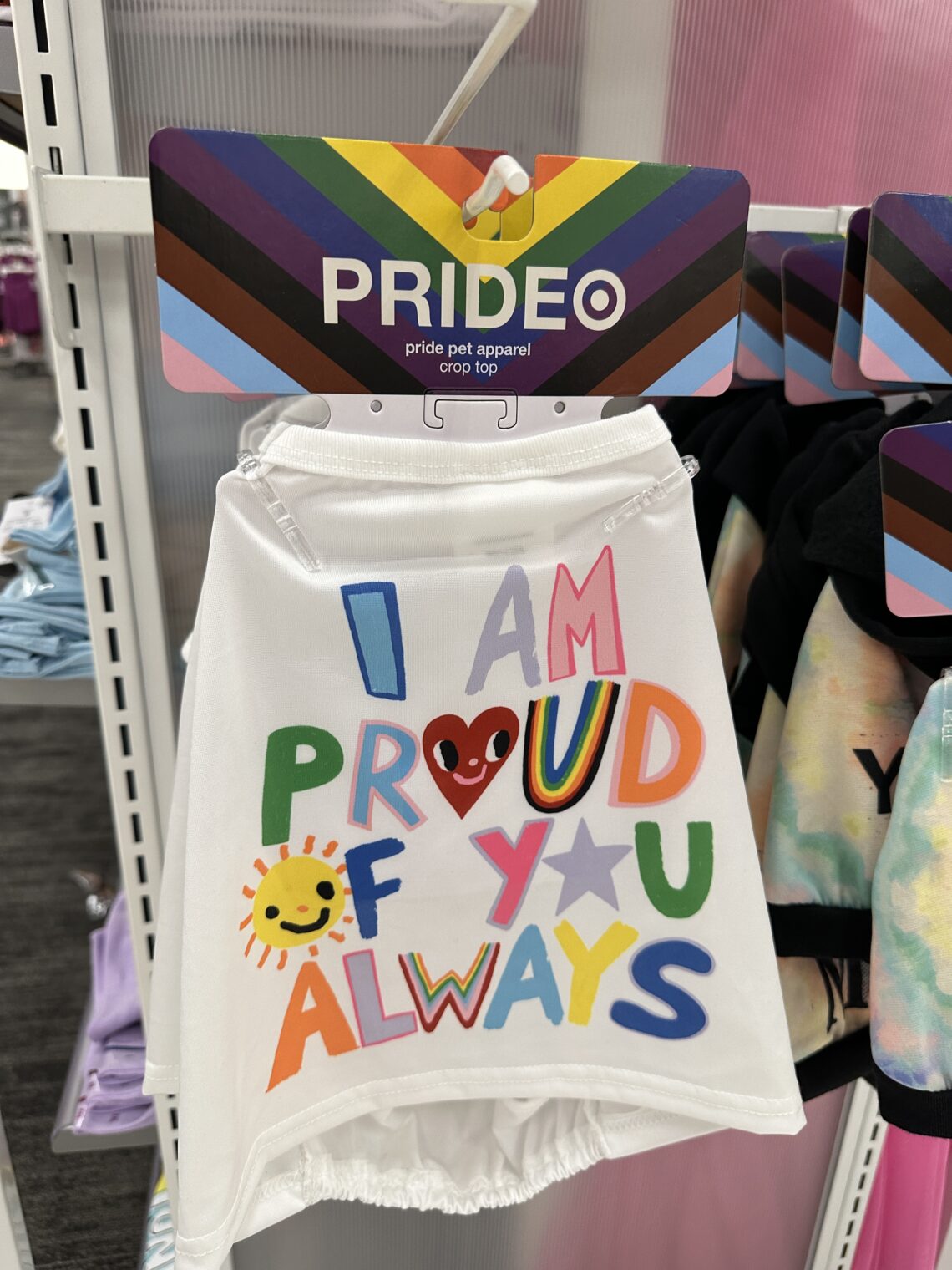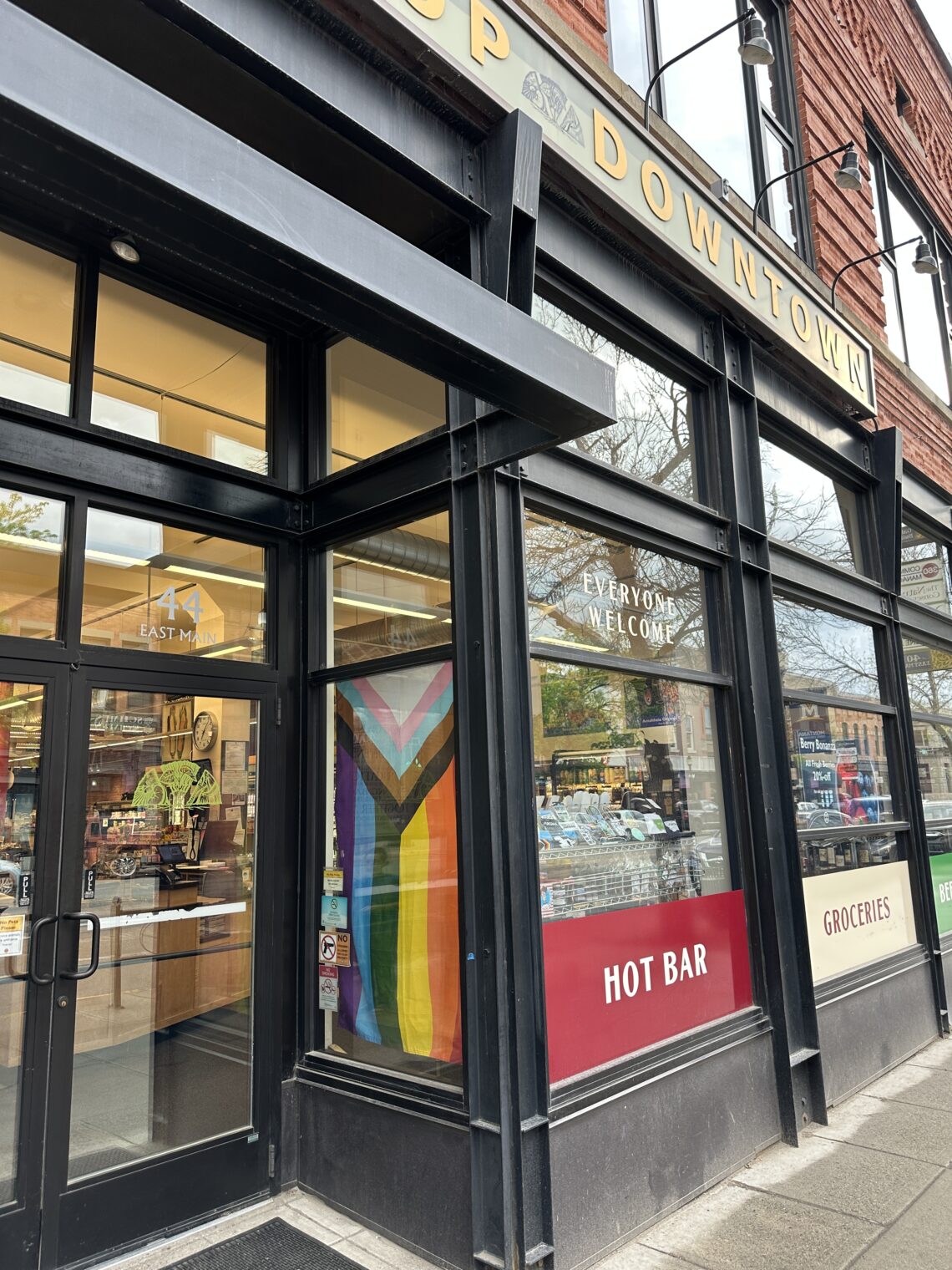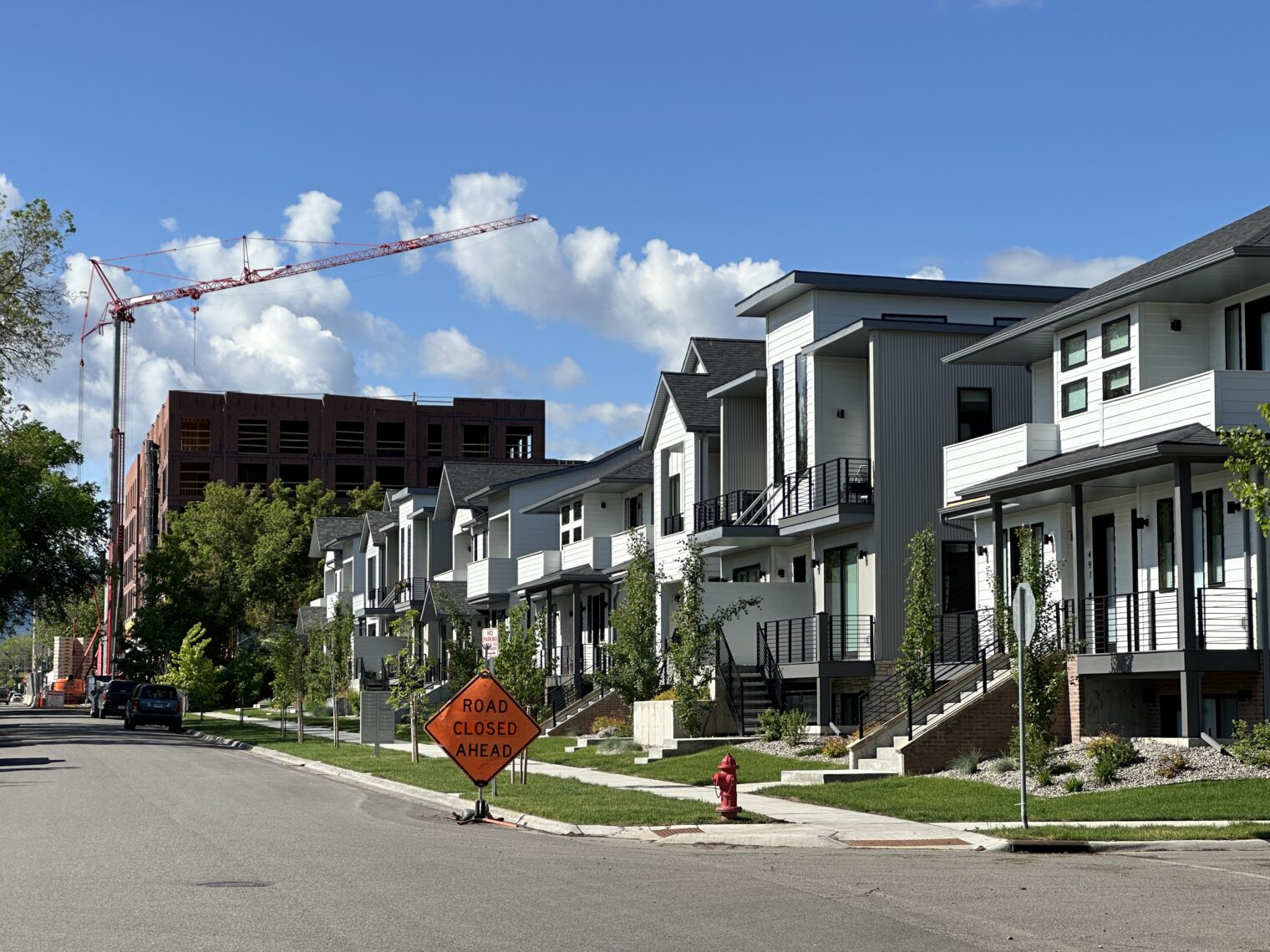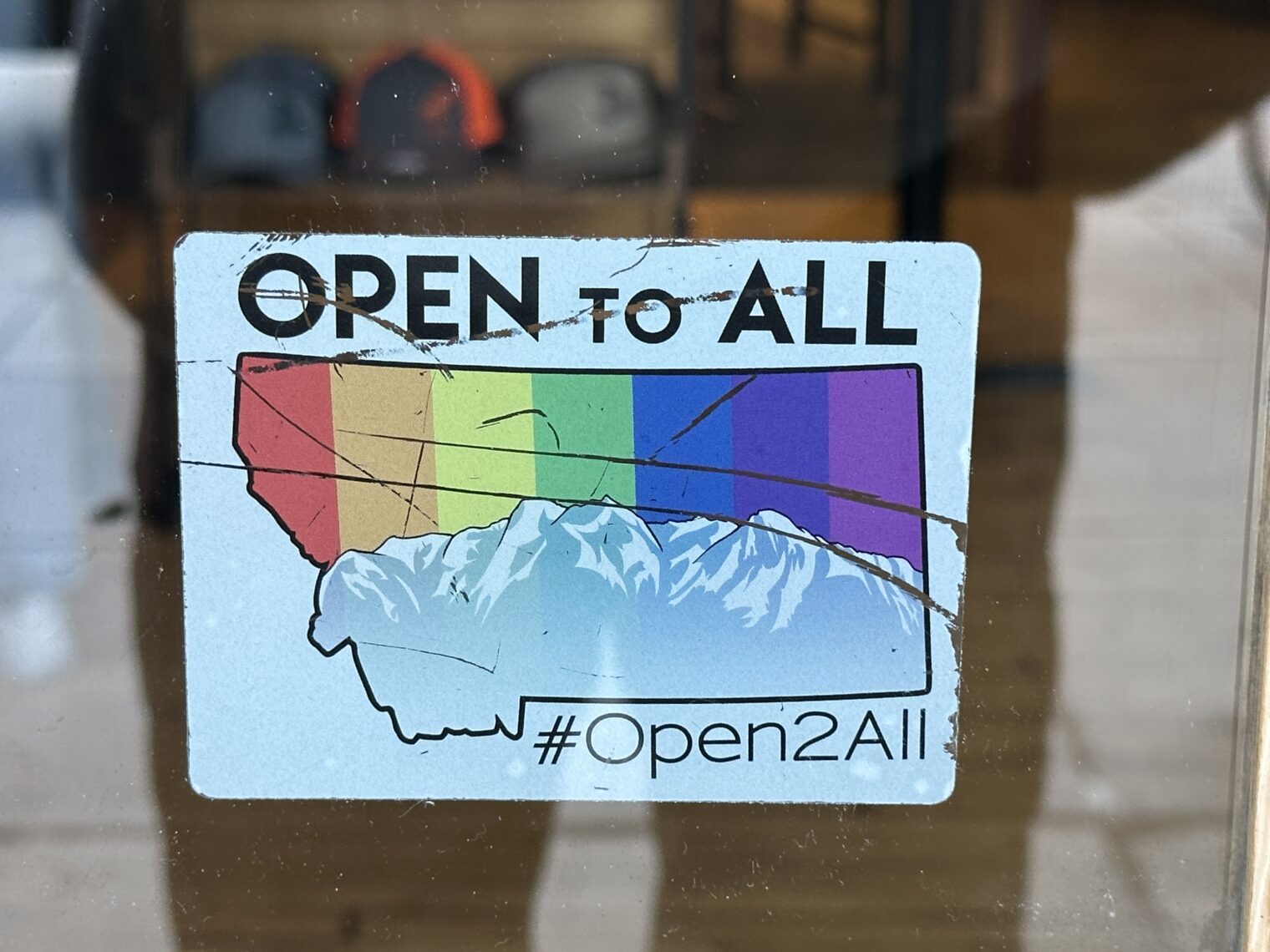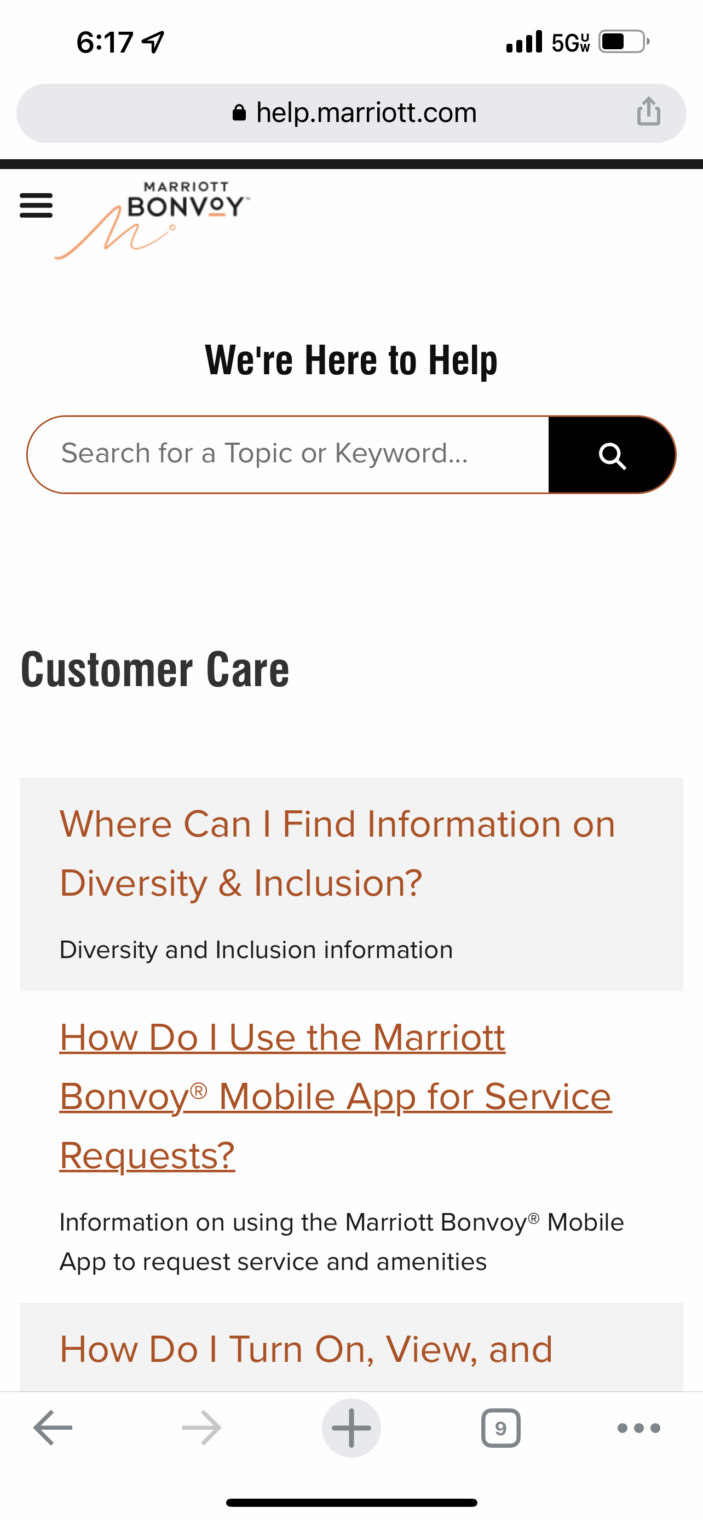Rainbow-first Retail (examples from Bozeman, Montana)
I hope that your Pride Month is going well. Let’s talk about the intersection between Pride and commerce….
In some sense it isn’t surprising that retailers would have some percentage of their stores devoted to 2SLGBTQQIA+ merchandise because at least some percentage of customers will want items that broadcast their passion for the Rainbow Flag Religion (see “Nothing against LGBTQ people, but they talk about being LGBTQ all the time.”). On the other hand, unless we think that followers of Rainbow Flagism are the majority of customers, it seems odd that 2SLGBTQQIA+ merchandise is right in the front of the store, given greater prominence than everything else that customers might want.
It wasn’t Pride Month last month, but retailers in Bozeman, Montana nonetheless were following a principle that I’m going to call Rainbow-first Retail, in which every customer will be exposed to 2SLGBTQQIA+ merchandise prior to the rest of the shopping experience.
Let’s start at Target. A shopper who comes in to get a toaster, a bottle of aspirin, or a bag of Cheetos must first walk by Pride Island, which is placed just inside the main doors:
Only haters would suggest that Rainbow Flagism is a religion rather than Science, yet Target sells a gingerbread-house-like kit labeled “celebratory offering” (bottom row below; click to enlarge):
You can “Spread the Love” with a spatula by Alice Butts:
I quickly found 2SLGBTQQIA+-themed apparel in sizes down to 3T (for three-year-olds):



What if Mindy the Crippler demands to be included in Pride Month? We can cover her unsightly golden fur with a beautiful rainbow “crop top” in the “pride pet apparel” category:
Is it then fair to say that Target has something for everyone? Perhaps not. An aircraft owner friend likes to say “I’m proud of my race and I’m proud of my sexuality” yet Target does not offer clothing celebrating white heterosexuality.
What if we’re having our 2SLGBTQQIA+ friends over for a party? Target sells 2SLGBTQQIA+ beverages:


The local merchants actually pushed Rainbow Flagism out to the storefront with flags in the windows and stickers on the glass. Customers are required to pay obeisance to the sacred flag before they can walk in and think about transacting business.
Quite a few merchants had the following signs and stickers on their front doors/windows:

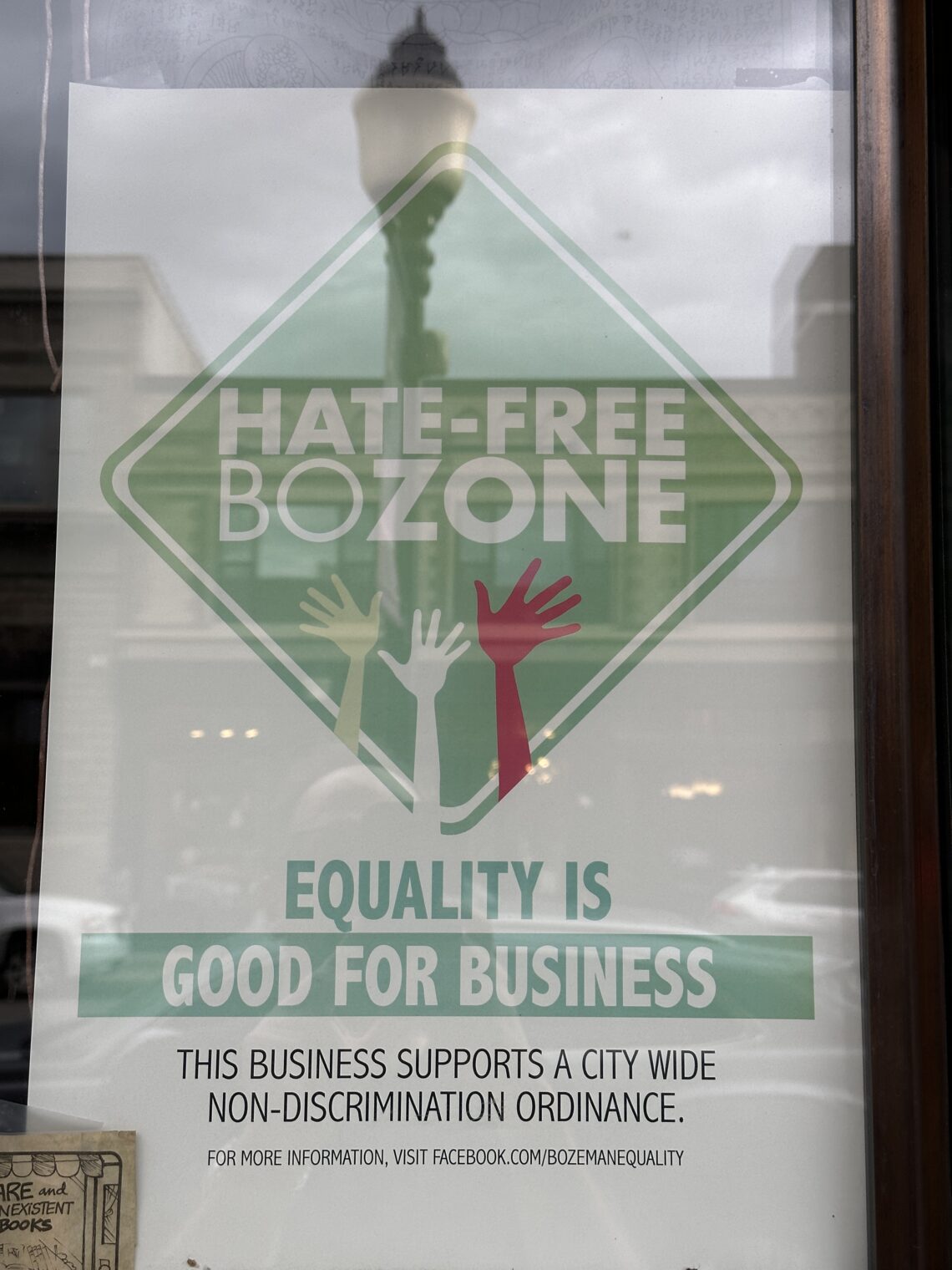
Note that Muslims are lumped in with “LGBTQ community members”. We didn’t meet any recent migrants from Afghanistan, Syria, Iraq, or Somalia, but I wonder if they feel “welcome here” when they must walk by a giant rainbow flag in order to get food at the downtown market:
“Everyone Welcome” is stenciled on the glass. Would Ron DeSantis be welcome? Wouldn’t that be normalizing hate?
Speaking of Ron DeSantis, notorious for banning books in a state where all 2SLGBTQQIA+ books for kids remain available for free at the public library, the principal bookstore in Bozeman proudly sells for cash those “banned books” that remain available for free at the Florida public libraries.
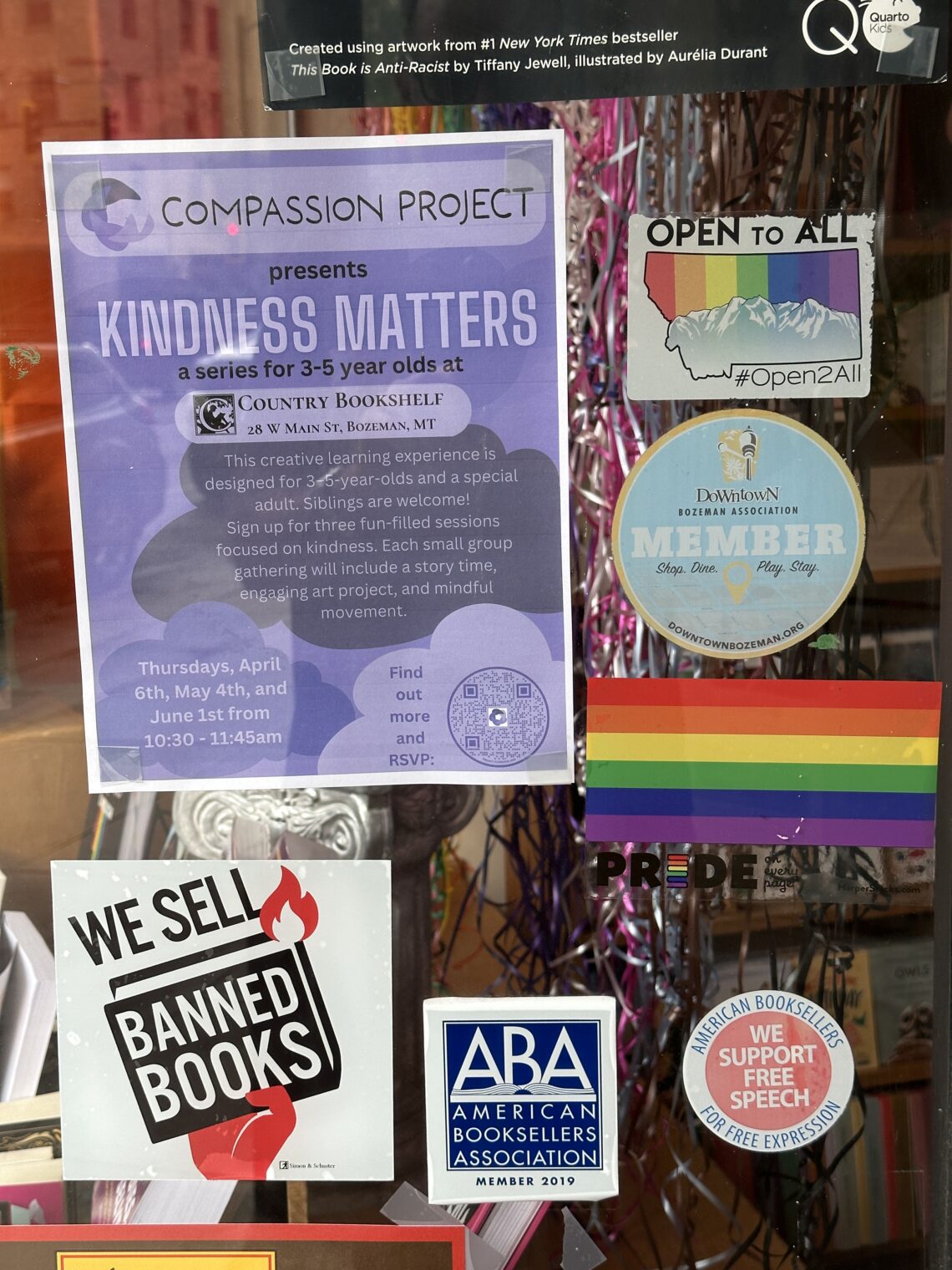




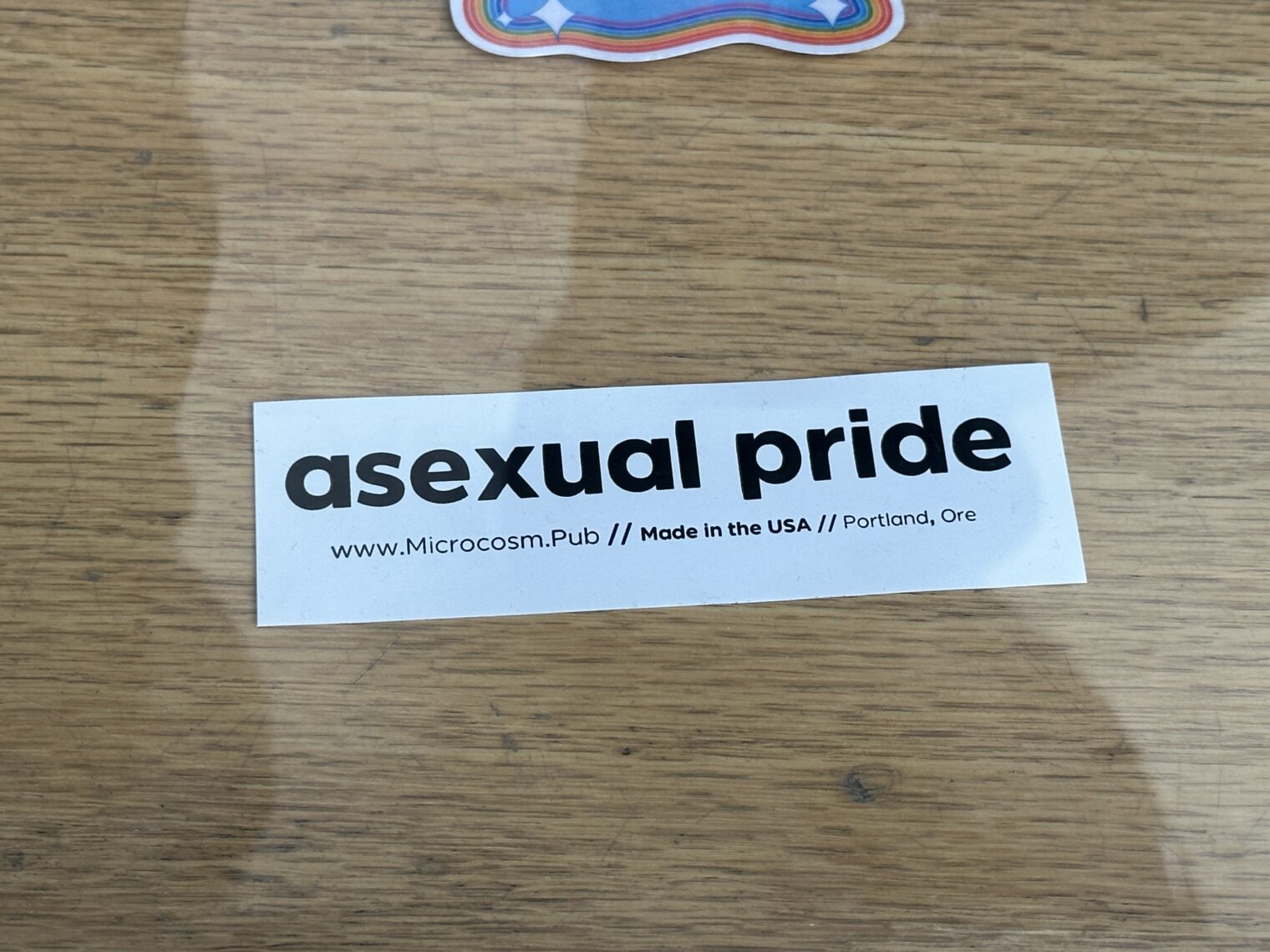
Maybe “asexual pride” is for married heterosexual guys? (“Only 48% of married women want regular sex after four years”).
If the bookstore window was 100% devoted to 2SLGBTQQIA+, did they have anything inside on a different topic? Pulitzer winner about the greatest American of the 21st century:
Circling back to the “immigrants welcome” theme, locals told us that Bozeman has become completely unaffordable due to skyrocketing rents and house prices. Traffic lights are being added so quickly that we stopped at several that weren’t yet in Google Maps. Apartment buildings are being constructed in what were formerly low-rise neighborhoods. Example:
Here’s data from Zillow:
Unless immigrants are going to be sheltered by say-gooders, won’t population expansion via immigration exacerbate the already-identified “housing for humans crisis”? Here’s a coffee shop that welcomes migrants, but excludes Canine-Americans:

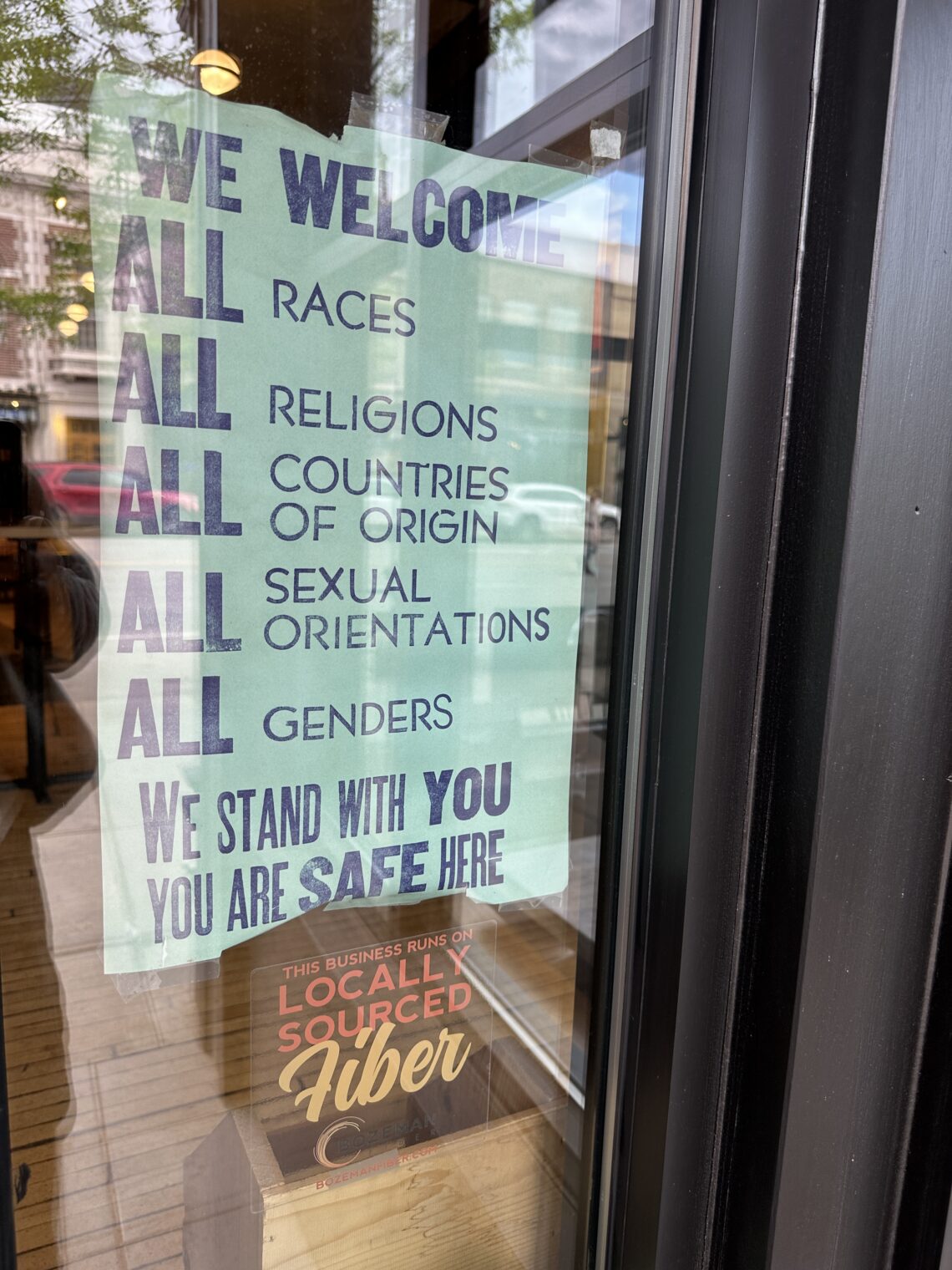
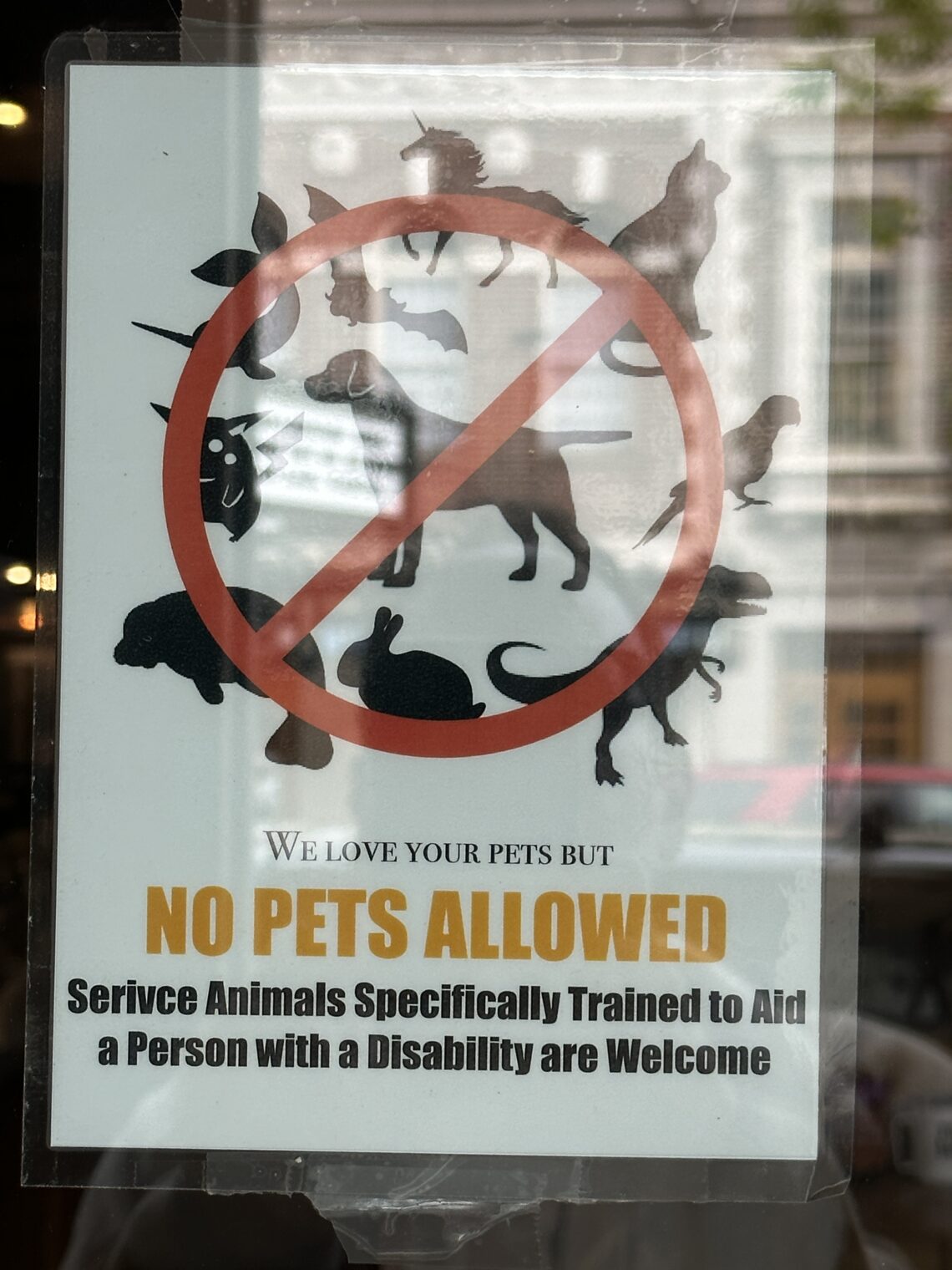
In addition to welcoming “All Countries of Origin” they welcome “All Religions” but have a rainbow sticker on the front door as well:
How can an observant Muslim feel welcome?
Here’s a shop that features, on the outside of the building, a dark-skinned person with a substantial bulge in the panties:


We didn’t see a single person with this skin color during two days in Bozeman.
Circling back to the Rainbow-first Retail theme of this post… why is it profitable? Why does the typical customer want to be reminded to observe Rainbow Flagism when going into a store to buy something that isn’t related to the 2SLGBTQQIA+ lifestyle?
Full post, including comments



